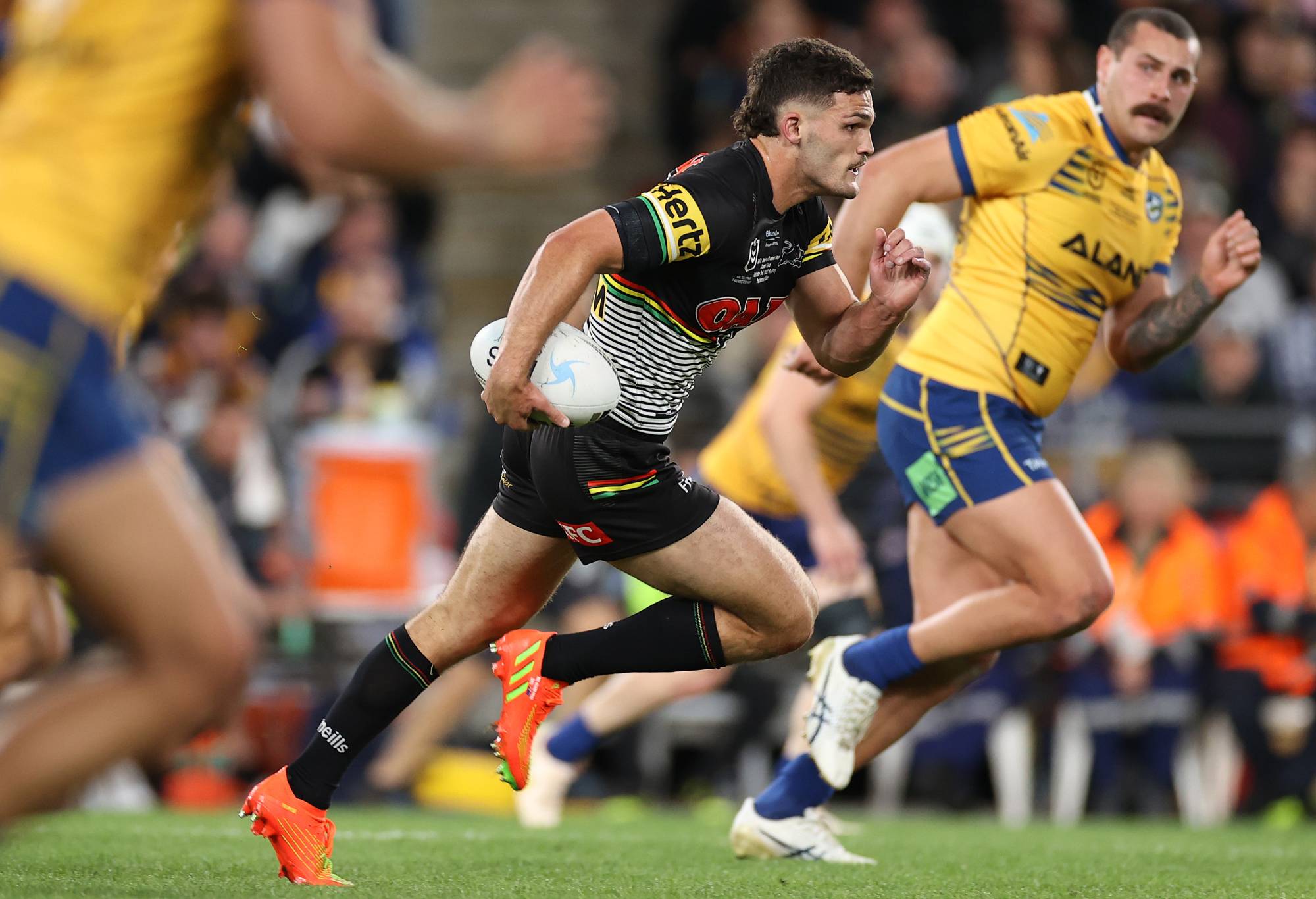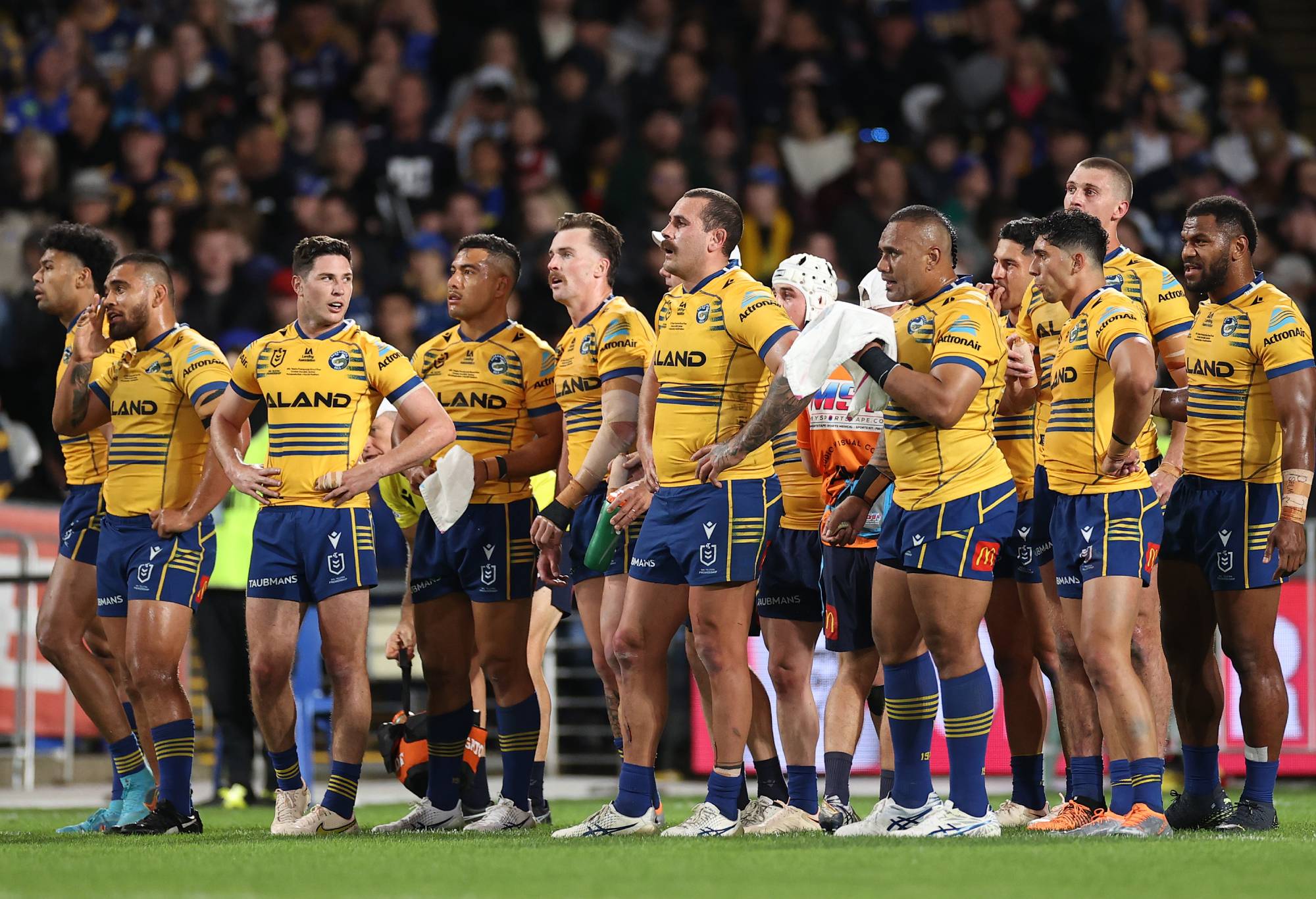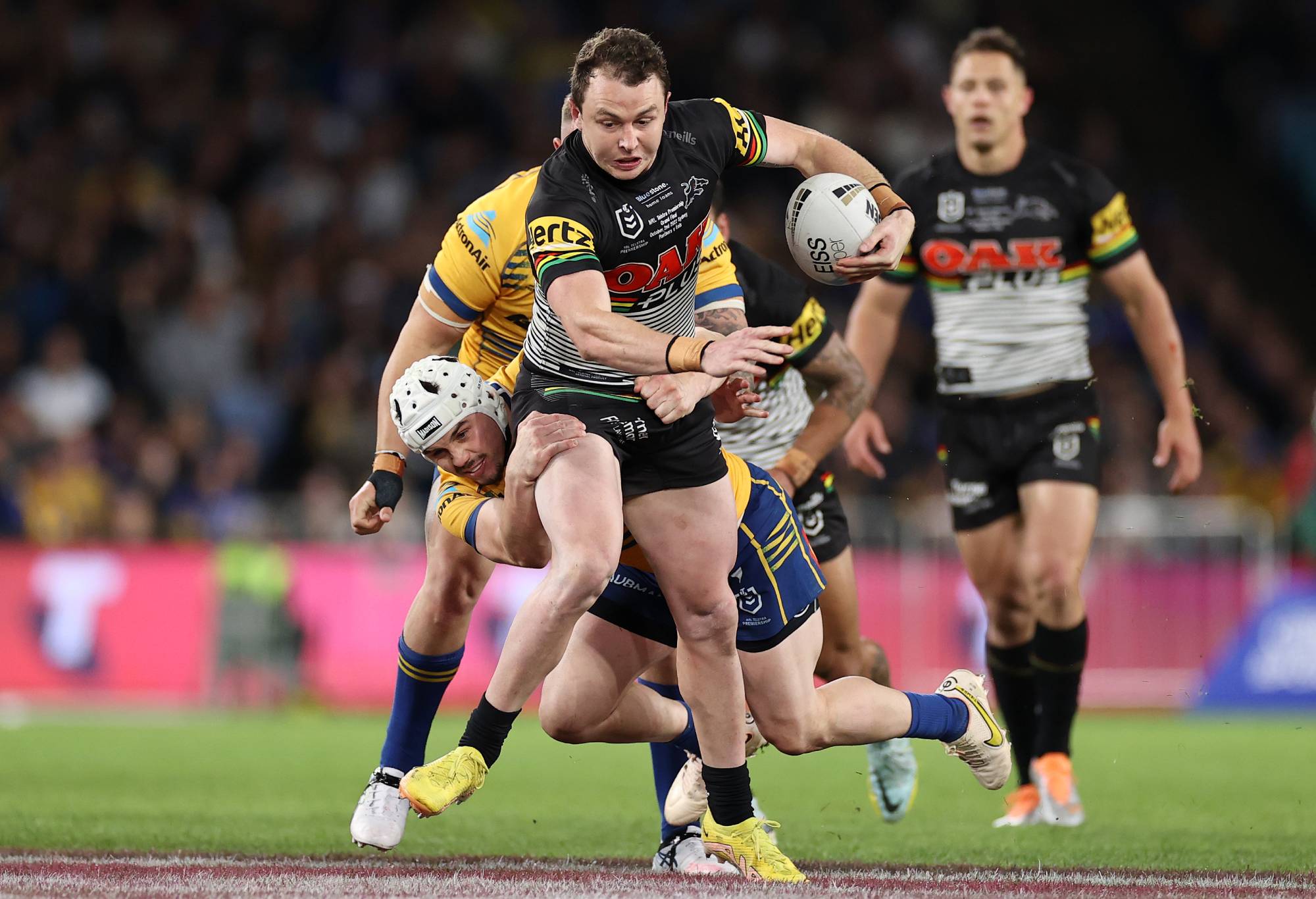Darwin theory dictates only the strongest survive - Arthur on the rocks at Eels after embarrassing capitulation
Gold Coast don’t get credit for doing too many things right but when it comes to sacking a coach mid-season they are the gold…
That was something of an anti-climax. Well, maybe not. If you rate games based on their closeness, then it certainly was an anticlimax, but then again: the Titans 8-6 win over the Tigers was both close and the worst game of the year.
This was a supreme team playing supremely well. The culmination of a systematised approach to a sport that values systems and collectives above all things. It was peak of their powers stuff. We won’t see their like again.
Parra were far below their best, but it also doesn’t really matter because if they had been at their best, they would have likely still lost and badly.
Here’s how the Grand Final was won.

(Photo by Cameron Spencer/Getty Images)
A few weeks ago, I proclaimed the death of the grind after the first round of the finals. Only two of the eight finals teams were interested in that style. On the evidence of tonight, only one of them is actually good at it.
If this was meant to be a grind, nobody told Parramatta. They have proven semi-able to deal with the Panthers in the middle, but the rub of it is that you have to do it all the time. They couldn’t.
A telling moment was Nathan Cleary’s attempted 40/20 in the first half. Gutherson kept it in, but in doing so, forced his middles into another bout of defending that they simply weren’t up to.
Reagan Campbell-Gillard went half an hour straight before being replaced, and in a game like this, that was always going to take a toll. Penrith do the bulk of their yardage work in the backs and thus can leave their props on longer, but even they withdrew Leota after 16 minutes.
Spare a thought for Nathan Brown. He waited months to get a return to first grade, was given a run in the Grand Final and, as he was waiting on the sideline to come on, Sorensen scored to make it 18-0. It’s a harsh game.
The big selection call for the Panthers ahead of kick off was over the hooking role. Ivan Cleary was more than justified in his choice to start with Mitch Kenny over Api Koroisau.
Nobody is suggesting that Kenny is a better player than Koroisau, but in the early softening up stages, his bigger body was able to throw shots in defence that Api simply can’t.
He rattled Maika Sivo and Reagan Campbell-Gillard early and got through his work efficiently in attack.
When it came time for Koroisau to enter, it was actually Moses Leota who departed, giving Kenny another few minutes as a roving middle before Scott Sorensen replaced him.
The purpose of starting Kenny was always about giving Api his time to shine against a defence under fatigue, while keeping him out of the worst of it in the middle in the opening stages. That worked perfectly: from the moment he came on, Koroisau was able to capitalise on slower line speed, jump out from dummy half and create.

(Photo by Cameron Spencer/Getty Images)
Look, we have to talk about Cleary’s spiral bombs. After literally weeks of build-up, Parramatta finally came up with a plan. From the first kick, Sivo dropped back with Clint Gutherson, but Waqa Blake didn’t. That seemed to be it.
Sivo is certainly better than Blake under the high ball – not difficult, admittedly – and the strategy seemed to be predicated on Gutherson going right to cover the space. This worked, at least a little bit, because Blake didn’t have to attempt catches, but the flow on effect was a generalised panic in the ranks when the high ball went up.
At one point, Mitch Moses was the saviour as he plucked one from the air over his shoulder (making it all look so easy) and on another, Gutherson had to dive late ahead of Jarome Luai. When Blake was forced to catch one, he didn’t, but was lucky enough to spill it backwards.
There was a lot of the usual Dylan Edwards good stuff, but we all know about the metres and the kick returns. Instead, let’s talk about his non-running stuff.
On several occasions, Edwards fooled the kick chase by switching the direction of attack and dumping the ball on Brian To’o, allowing the winger to take the carry.
Typically, teams kick away from To’o because he’s got the best play the ball and they’d prefer to tackle him off a straight hit up. Edwards forced his carries upon them.

(Photo by Cameron Spencer/Getty Images)
For the first try, it worked even better than that. After the Cleary 40/20 attempt, Parra were pinned in their end and kicked right down Edwards’ throat. He saw the chase coming unevenly – the Eels forwards were goosed – and got To’o through for a big metre gain.
Moments later, it was Edwards who put Stephen Crichton through the hole. Oh, and the Scott Sattler tackle in the second half, plus the try assist to Charlie Staines. Get him on the plane, Mal. Manchester is lovely at this time of year.
I have suggested on many, many occasions that Parramatta’s inability to contain opposing forward packs would come back and bite them on the behind.
Today was that day. Penrith were up above 45m per set, and that was factoring in that they started a lot of sets within that distance of the Parramatta line, which obviously limits how far they can go.
The domination of possession is one thing – Parra rarely do well unless they get at least 52% of the ball – but the real killer was that the Eels middle simply couldn’t stop the momentum coming the other way.
Well before Parra were defending badly because they were tired, they were defending badly because they were bad at defending. This has been a problem all year, but was usually counterbalanced by their ability to make metres.
When Penrith played the Roosters in round 16, the average set distances were around 38m per side. When Parra played Manly, a game they won relatively easily, the Sea Eagles made 50m per set against 48m from the Eels.
It’s not sustainable to win a competition conceding that many metres. It might win you a lot of regular season games, especially if your pack is really good with the ball, but as Brad Arthur found out tonight, that doesn’t mean much.